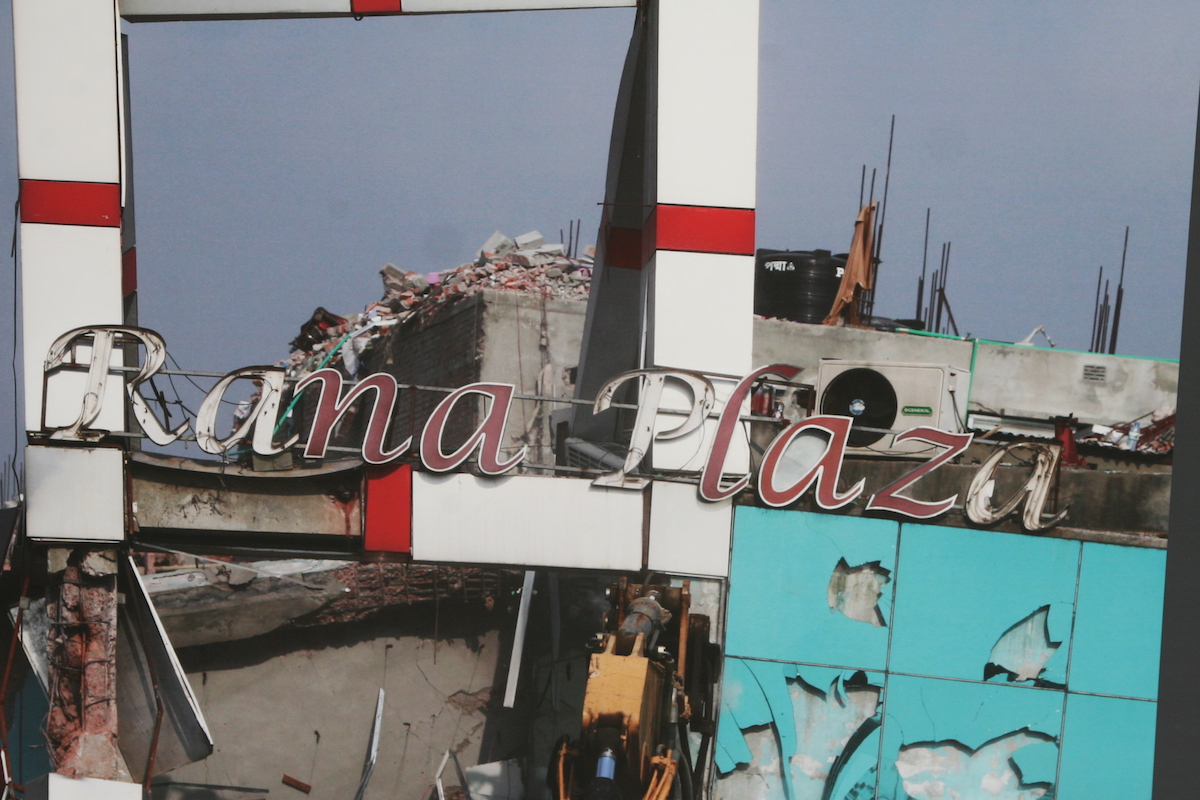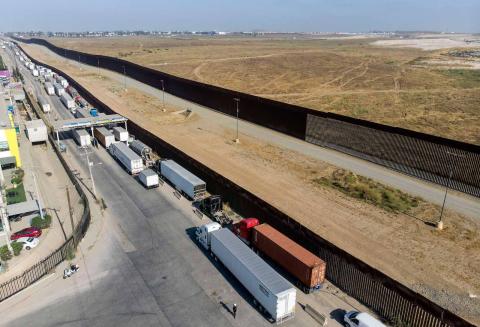This article is based on episode 10 of the Good Will Hunters podcast, featuring an interview with Clare Press, sustainability editor-at-large at Vogue Australia.
It’s known as “fast fashion”, clothes cheap to buy, yet costly to make, if the true labour and environmental costs are tallied. For garment works in some modern supply chains, the label they often wear is that of “modern slavery”.
There is an overwhelming need to hold corporations to account with respect to their supply chain processes.
United Nations estimates that up to 25 million modern slavery victims are exploited across the globe, a figure that should generate unquestionable horror. The fashion industry is far from the only culprit, yet governments have struggled to identify the scope of the problem or readily address the issues. Until now.
Australia’s Modern Slavery Bill (2018) outlines modern slavery as it is now understood and ties to an effort to address the problem in separate jurisdictions. The new law highlights not only its affront to basic human rights – such as workers’ need for a basic living wage – but by also addressing the ramifications of modern slavery for global industry, as the government has put it, by distorting global markets, undercutting responsible businesses and posing “significant legal and reputational risks for companies”.
In this, the fashion industry has been a case study. Under pressure to become more transparent with respect to its supply chains, consumers have been key instigators for change. Revelations of worker exploitation coupled with a realisation of the immense wastage in the industry were the spark. The success of initiatives such as Oxfam’s “What She Makes” campaign, as well as the devastating collapse of Rana Plaza in Bangladesh in 2013, killing more than 1000 workers, making the problems near-impossible to ignore.
Yet the lesson of such a tragedy cannot be a retreat from engaging international producers. This is especially important for small businesses, where the income generated by sales to big fashion brands provide critical income.
The challenge instead is to ensure adequate standards are put in place.

Clare Press, sustainability editor-at-large at Vogue Australia and leading sustainability figure in the world of fashion, has addressed many of the concerns facing the industry. What she dubs as the “opacity of supply chains” has a detrimental impact on the quality of life for workers primarily from developing nations. Where exploitation occurs, either through the payment of inadequate wages or sub-par working conditions, this information is simply not available to the average consumer, consequently shielding consumers from the impact their wallets have on society at large.
While Press is convinced fashion can be a “beautiful” and “inspiring industry”, her research demonstrates that the cost of not being a conscious consumer is far greater on the lives of individuals than shown on the price tag.
This is the problem of consumerism, the love of buying things, which researchers such as economist Richard Dennis see as a distinct from materialism, the love of the things themselves. The benefits of the former, in Dennis’ opinion, are short-lived. Yet Press sees an opportunity to not simply reverse consumer habits born out of a psychological mindset, but instead to re-shape them.
Press’ made a recent trip to Nairobi with the United Nations Ethical Fashion Initiative to support sustainable, ethical, and artisan manufacturing by connecting small producers to global fashion brands. This is an example of the development ethos of creating meaningful employment opportunities, rather than promoting charity.
As Press explained, bespoke fashion pieces that come with a story, such as a beaded purse made by a woman in Nairobi. A “micro-producer” appeals to consumers looking for something beyond a simple transaction. Indeed, Australian Fashion Brand Mimco is an example of having incorporated this practice into its business model.
Yet there is a price businesses face with this type of marketing.
They must be accountable to their consumer base as it comes to expect responsible businesses to be the norm and not the exception. The passage of Modern Slavery Acts in countries across the globe is a response to the overwhelming need to hold corporations to account with respect to their supply chain processes. In Australia, the Act will create a “Modern Slavery Statements Register,” although there are concerns that there are no proposed penalties for non-compliance.
Still, all this is a path to greater transparency with respect to business operations. Central to this shift in policy is a shift in values, aligning the power to profit with a more socially conscious society.

